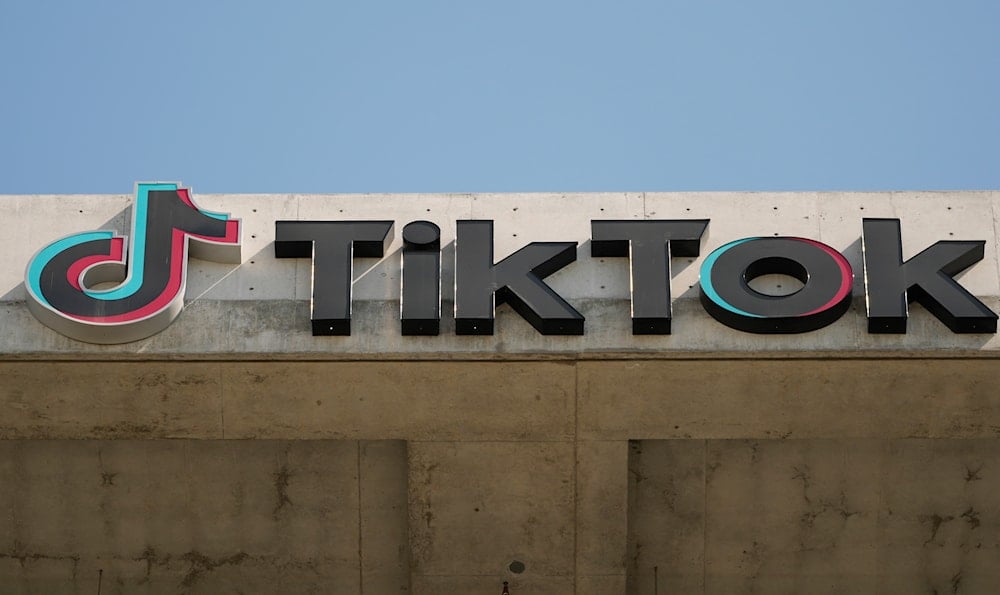DOJ tells court to reject TikTok's First Amendment use in ban lawsuit
The US says TikTok's Chinese parent company ByteDance cannot use its First Amendment rights in this country because the statute deals with national security issues rather than expression.
-

A TikTok sign is displayed on their building in Culver City, Calif., March 11, 2024. (AP)
In an attempt to thwart legislation that would require TikTok to sell the app or risk being banned in the US, the Justice Department responded to the company's civil lawsuit late on Friday.
In a federal court suit filed in Washington, TikTok claims that the law infringes upon its First Amendment right to free speech.
In response, the US says TikTok's Chinese parent company ByteDance cannot use its First Amendment rights in this country because the statute deals with national security issues rather than expression.
Senior Justice Department sources stated in a briefing that the filing outlines worries that ByteDance may and would comply with Chinese government demands for data about US users or give in to pressure to censor or promote content on the site.
One senior Justice Department official said, "The goal of this law is to ensure that young people, old people and everyone in between is able to use the platform in a safe manner," adding, "And to use it in a way confident that their data is not ultimately going back to the Chinese government and what they're watching is not being directed by or censored by the Chinese government."
The reply contends that the legislation is outside the purview of the First Amendment because it concentrates on TikTok's foreign ownership.
Read next: China calls US ban of TikTok 'bandit logic', vows to protect interests
Justice Department officials claim that US intelligence agencies are worried that China can "weaponize" mobile apps.
A senior Justice Department official said, "It's clear that the Chinese government has for years been pursuing large, structured datasets of Americans through all sorts of manner, including malicious cyber activity; including efforts to buy that data from data brokers and others, and including efforts to build sophisticated AI models that can utilize that data".
According to TikTok, the requested divestiture is "simply not possible" and cannot be completed in the time frame needed.
The bill that President Joe Biden signed into law earlier this year gave TikTok until mid-January 2025 to locate a non-Chinese buyer or risk being banned in the US.
The deadline may be extended by ninety days by the White House.
The suit by TikTok and ByteDance stated, "For the first time in history, Congress has enacted a law that subjects a single, named speech platform to a permanent, nationwide ban, and bars every American from participating in a unique online community with more than one billion people worldwide."
ByteDance's sole chance to prevent a ban is to proceed with the litigation, which is expected to reach the US Supreme Court since the company has stated that it has no plans to sell TikTok.
"There is no question: the Act will force a shutdown of TikTok by January 19, 2025," the lawsuit said, "silencing (those) who use the platform to communicate in ways that cannot be replicated elsewhere."
The administration of former president Donald Trump initially targeted TikTok and made vain attempts to outlaw it.
A federal judge temporarily blocked Trump's attempt to ban the app, stating that the reasons for doing so were probably exaggerated and that free speech rights were being threatened.
This caused the endeavor to become mired in legal proceedings. The goal of Biden's new initiative was to avoid these legal entanglements, and some analysts think the US Supreme Court may be willing to grant national security concerns precedence over protections of free expression.
"We view the statute as a game changer from the arguments that were in play back in 2020," a senior justice department official noted.
Even if ByteDance granted the request, there is a good chance that no buyer would show up to take TikTok.
Due to antitrust concerns, big internet heavyweights like Google and Facebook parent Meta will probably not be allowed to acquire TikTok. Others won't be able to afford one of the most popular apps in the world, which is used by 170 million people in the US alone.

 4 Min Read
4 Min Read








